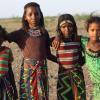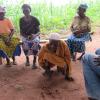Jump to: ASSAR's focus on knowledge systems | Key insights | Contact | News stories | Outputs
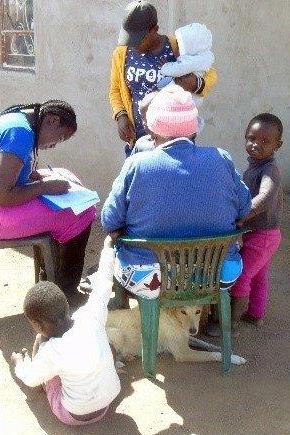
Climate adaptation knowledge is currently predominantly focused on weather and seasonal timescales, is dominated by climate warnings, and rarely extends to adaptation information. As climate change progresses, greater integration across timescales will be needed to prepare for novel climate risks. Integration of knowledge across institutions, knowledge domains, and geographic scales is equally necessary. Though the policy mandate for the generation and dissemination of climate information typically resides with government agencies, their efforts can be supported by intermediaries who are often better placed to bridge the different knowledge domains, and to work with at-risk communities. Developing the capacity of these intermediaries, and embedding them in the broader knowledge system is key, as they can also help to tailor adaptation information for different sectors (e.g., agriculture, forestry) and social groups to ensure that knowledge reaches those who might otherwise be excluded. The use of mobile technology offers further opportunities for improving people’s access to timely, usable and locale-specific climate and adaptation information, particularly in rural areas where access is frequently limited.
ASSAR’s focus on knowledge systems
ASSAR hypothesised that “knowledge”, and the “knowledge system” within which knowledge is generated, exchanged, used, tested and updated (see Box 1) is a key enabler for adaptation. Our research aimed: (i) to document the knowledge resources relating to climate change adaptation that were available to communities in semi-arid areas, and how their access and use was socially differentiated; and (ii) to understand governance arrangements that act as barriers or enablers for the generation and transfer of climate adaptation knowledge.
Box 1: A climate adaptation knowledge system is an organised structure and dynamic process that (a) generates and represents content, components, classes, or types of knowledge that are (b) relevant, reliable and useful to those vulnerable, and needing to adapt to, climate risks. These knowledge systems are (c) reinforced by a set of logical relationships that connect the content of knowledge to its value (utility), and are (d) enhanced by a set of iterative processes that enable evolution, revision, adaptation, and advance (modified from the Global System for Sustainable Development, accessed 2018).
We worked across scales, from our local case study sites to regional and national climate service systems, to assess the state of climate adaptation knowledge systems for semi-arid communities. While many previous assessments of climate knowledge have focused on weather and seasonal climate information, we also evaluated the state of knowledge on longer timescales relevant to climate change, and the knowledge that is available for adaptation.
Key insights
Climate information needs a longer-term focus, and to include adaptation solutions
At national levels, most of the effort to produce climate information is placed on weather and seasonal climate forecasting and advisories. Far less effort is placed on generating and using longer-term climate information that can inform strategic planning. This means that local planning is undertaken without consideration for how climate change may impact on different development options and priorities. Knowledge on adaptation – how to respond to forecasted risks – is even less mature and accessible than climate risk information. This can hamper the ability to respond to weather and climate forecasts and projections.
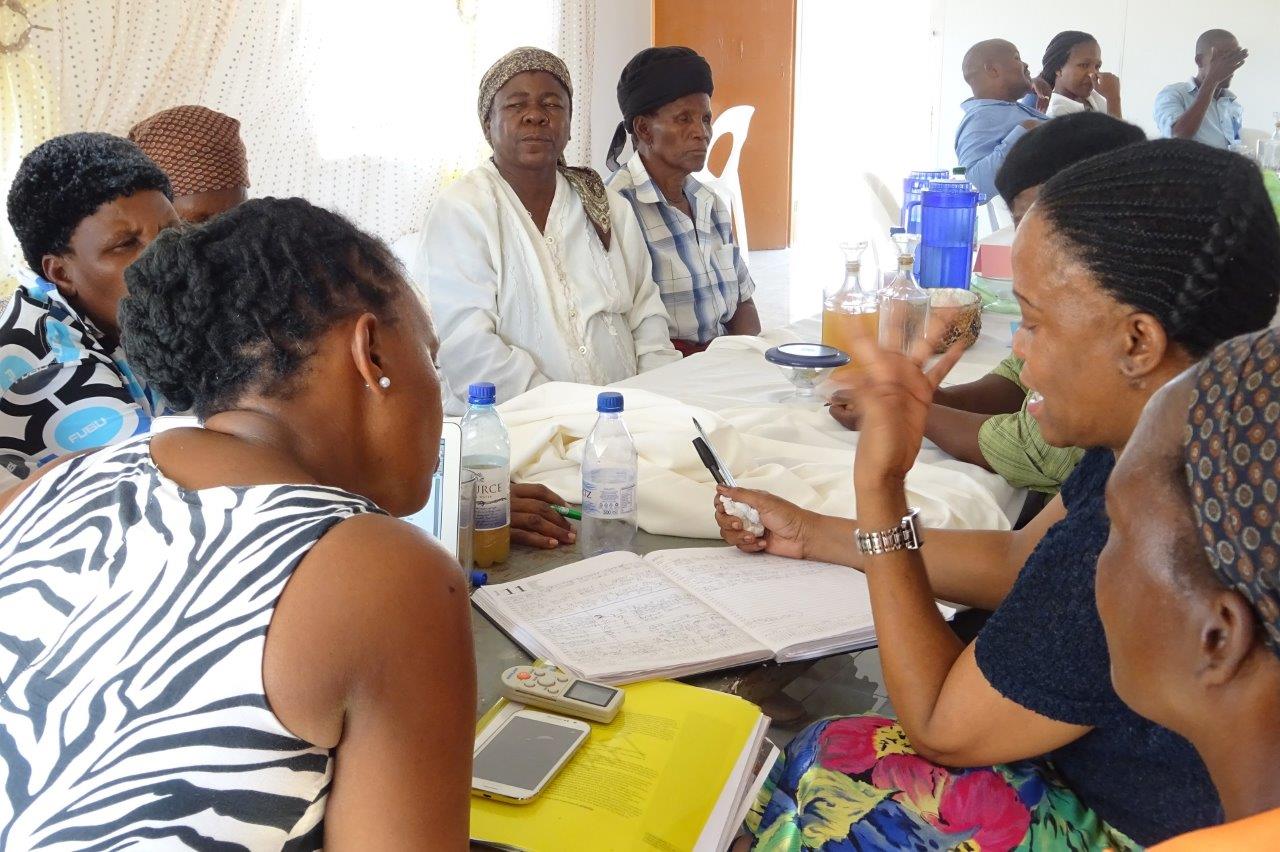
Generating relevant, usable and reliable knowledge requires collaboration across institutions, knowledge domains, and geographic scales
The multi-faceted and multi-scale nature of climate adaptation knowledge systems means that inter-organisational collaboration, and the enabling of governance arrangements, are critical in determining what information is generated, how it is communicated and used, and how its relevance, usability and reliability are perceived by vulnerable communities.
Access and use of climate adaptation knowledge is often socially differentiated
Access to climate services and adaptation information can be affected by gender and other dimensions of social difference. Local intermediaries who understand these differences can help to tailor information services and build local capacities, to reach those who might otherwise be excluded.
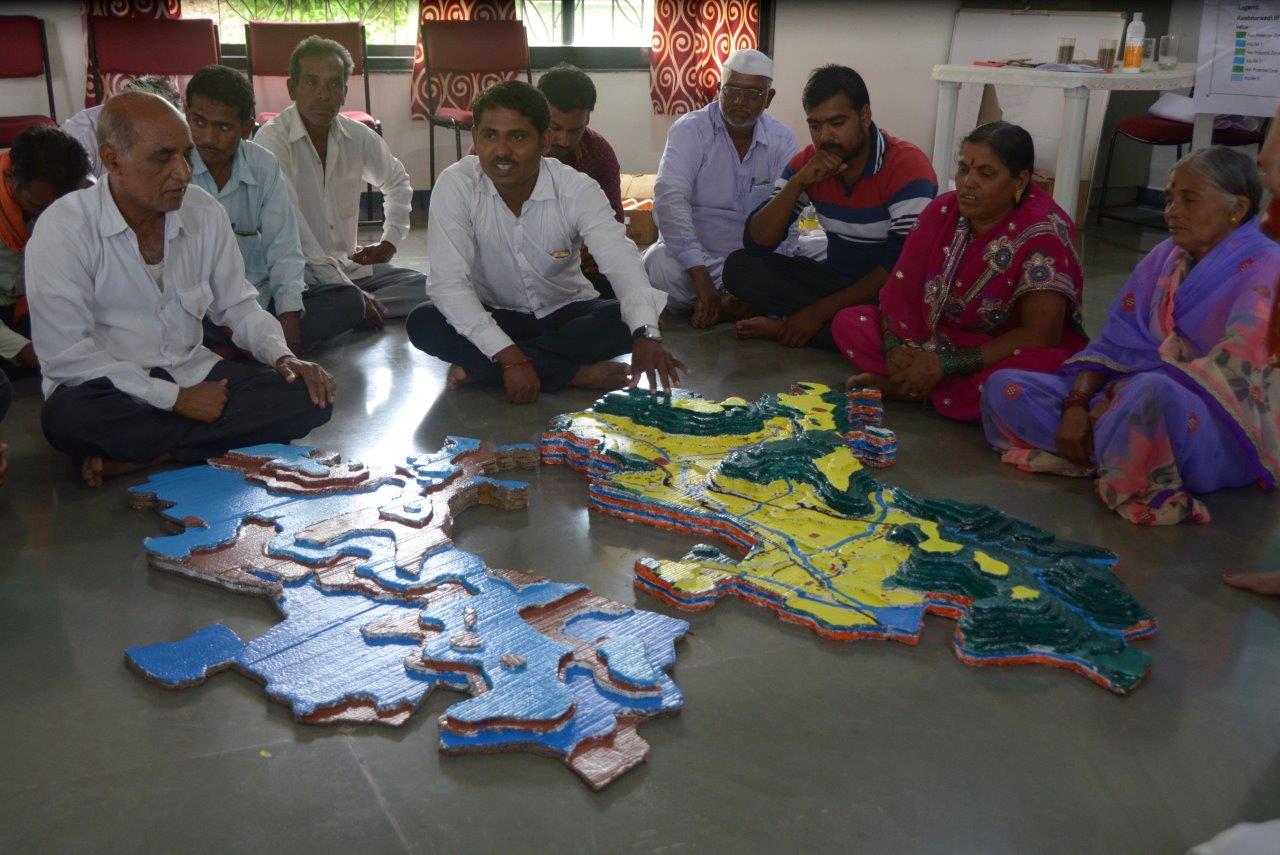
Mobile technology offers new opportunities for dissemination and collaboration
Mobile technology can be used to improve farmer access to locale-specific climate and adaptation information. Ensuring that advisory systems are demand-driven and based on farmer needs is vital, as is ensuring that the costs of accessing this information are not prohibitive.
Click here for more detail, and ASSAR's specific recommendations for policy, practice, and research
Contact
|
Mark New (mark.new@uct.ac.za), University of Cape Town |
Related news stories
Related outputs
|
Type |
Author(s) |
Year |
Title |
Details |
Links |
|---|---|---|---|---|---|
| Book chapter | Bendapudi, R., Kumbhar, N., Gaikwad, P. and Lobo, C. | 2019 | Agro-met services and farmer responsiveness to advisories: Implications for climate-smart agriculture. | In: W. L. Filho (ed.) Handbook of climate change resilience. Cham: Springer. | Poster |
| Book chapter | Davies, J., Spear, D., Chappel, A., Joshi, N., Togarepi, C. and Kunamwene, I. | 2018 | Considering religion and tradition in climate smart agriculture: Insights from Namibia. | In: T. Rosenstock, A. Nowak and E. Girvetz (eds.) The Climate-Smart Agriculture Papers. Cham: Springer, pp. 187-197. | Summary |
| Book chapter | Shaibu, M. T., Alhassan, S. I., Avornyo, F. K., Lawson, E. T., Mensah, A. and Gordon, C. | 2019 | Perceptions and determinants of the adoption of indigenous strategies for adaptation to climate change: Evidence from smallholder livestock farmers in north-west Ghana. | In: J. K. Kuwornu (ed.) Climate Change and Sub-Saharan Africa: The vulnerability and adaptation of food supply chain factors. Vernon Press, pp. 229-249. | |
| Infographic | ASSAR | 2018 | Challenging assumptions about gender and climate adaptation. | Oshiwambo infographic | |
| Information brief | CARIAA | 2018 | Climate adaptation policy. | ||
| Information brief | Degefu, M. A., Assen, M. and Tesfaye, M. | 2019 | Prosopis juliflora: Impacts and management in the face of climate change in Ethiopia’s Middle Awash Valley. | ||
| Information brief | Few, R. | 2017 | Drought does not work alone. | ||
| Information brief | Few, R., Singh, C., Spear, D., Davies, J., Tebboth, M. G. L., Sidibe, A, Mensah, A. and Thompson-Hall, M. | 2018 | When adaptation barriers and enablers intersect: Key considerations for adaptation planning drawn from ASSAR’s findings. | ||
| Information brief | McGahey, D. | 2016 | Climate change, ecosystem services and adaptation in East Africa’s semi-arid regions: Early diagnostics of critical knowledge gaps for landscape conservation. | ||
| Journal article | Few, R. and Tebboth, M. G. L. | 2018 | Recognising the dynamics that surround drought impacts. | Journal of Arid Environments, 157: 113-115. | Summary; Information brief |
| Journal article | Morchain, D., Ziervogel, G., Spear, D., Masundire, H., Angula, M., Davies, J., Hegga, S. and Molefe C. | 2019 | Building transformative capacity in southern Africa: Surfacing knowledge through participatory Vulnerability and Risk Assessments. | Action Research, 17(1): 19-41. | Summary |
| Journal article | Ofoegbu, C., New, M. G. and Kibet, S. | 2018 | The effect of inter-organisational collaboration networks on climate knowledge flows and communication to pastoralists in Kenya. | Sustainability, 10(11): 4180. | |
| Journal article | Ofoegbu, C., New, M., Nyamwanza, A. M. and Spear, D. | 2018 | Understanding the current state of collaboration in the production and dissemination of adaptation knowledge in Namibia. | Environment, Development and Sustainability. | |
| Journal article | Ramarao, M. V. S., Sanjay, J., Krishnan, R., Mujumdar, M., Bazaz, A. and Revi, A. | 2018 | On observed aridity changes over the semiarid regions of India in a warming climate. | Theoretical and Applied Climatology. | Summary |
| Journal article | Singh, C., Daron, J., Bazaz, A., Ziervogel, G., Spear, D., Krishnaswamy, J., Zaroug, M. and Kituyi, E. | 2018 | The utility of weather and climate information for adaptation decision-making: Current uses and future prospects in Africa and India. | Climate and Development, 10(5): 389-405. | Summary; Video |
| Journal article | Spear, D. and Chappel, A. | 2018 | Livelihoods on the edge without a safety net: The case of smallholder crop farming in north-central Namibia. | Land, 7(3): 79. | Summary |
| Journal article | Totin, E., Segnon, A. C., Schut, M., Affognon, H., Zougmoré, R. B., Rosenstock, T., and Thornton, P. K. | 2018 | Institutional perspectives of climate-smart agriculture: A systematic literature review. | Sustainability, 10(6): 1990. | Summary |
| Publication in progress | Gitonga, Z. and Visser, M. | _ | Evaluating access, use and impact of climate information on welfare and use of adaptive strategies by rural families in arid regions of northern Namibia. | ||
| Publication in progress | Hegde, G., Sasidharan, S. and Bazaz, A. | _ | Traditional knowledge systems and the role of knowledge brokers, in India. | Poster | |
| Publication in progress | Kaur, H., Bazaz, A. and Srinivas, A. | _ | Understanding access to knowledge systems and rural perspectives from Karnataka. | ||
| Publication in progress | Kibet, S., Wasonga, O., Satyal, P., Rao, N. and Zewdie, A. | _ | Perceptions on governance and knowledge flow on effective adaptation to climate changes within community-based conservancies in Kenya. | ||
| Publication in progress | Mulwa, C. and Visser, M. | _ | Weather uncertainty and demand for information in agricultural technology adoption: Case study from Namibia. | ||
| Publication in progress | Ofoegbu, C. and New, M. | _ | The effect of inter-organisational collaboration networks on climate knowledge flows and communication to rural farmers in Ghana. | ||
| Publication in progress | Satyal, P., Budds, J., Few, R., Bahir, A., Kibet, S. | _ | Adaptation to climate change in the context of decentralisation: Exploring multi-level governance of water-related issues in semi-arid areas of East Africa. | Presentation | |
| Publication in progress | Segnon, A. C., Achigan-Dako, E. G., Zougmore, R. B., Lokossou, J., et al. | _ | "Who you are, what you know and where your knowledge comes from affects what you do": Insight from climate change adaptation strategies in semi-arid areas of Mali. | ||
| Publication in progress | Shaibu, M. T., Onumah, E. E. and Al-Hassan, R. M. | _ | A comparative analysis of levels and intensity of adoption of climate change adaptation strategies among livestock farmers in North-West Ghana. | ||
| Publication in progress | Sidibe, A., Sanga. U., Rajiv. P. and Olabisi, L. S. | _ | Translating mental models into system dynamics models for analyzing food security. | ||
| Publication in progress | Sidibe, A., Totin, E. and Olabisi, L. S. | _ | Analysing consensus building in the participatory scenario process: A case of transformative scenario process in Mali. | ||
| Journal article | Spear, D., Selato, J. C., Mosime, B. and Nyamwanza, A. | 2019 | Harnessing diverse knowledge and belief systems to adapt to climate change in semi-arid rural Africa. | Summary; Presentation | |
| Publication in progress | Togarepi, C., Nangolo, E. and Gitonga, Z. | _ | Climate change impacts on livelihood strategies and food security in north-central Namibia. | ||
| Report | ASSAR | 2019 | Participatory processes build adaptive capacity and agency and can help transform systems. | ||
| Report | ASSAR | 2019 | Putting people at the centre can enable effective adaptation in semi-arid regions: Insights from ASSAR. | Summary | |
| Report | ASSAR | 2019 | Vulnerability and adaptation to climate change in semi-arid Ghana. | ||
| Thesis | Bridges, K. | 2017 | The role of climate information and advisory services in drought resiliency: A comparative case study in Tamil Nadu, India. | Master's thesis. Oxford University. | |
| Thesis | Lente, I. | 2017 | Poster | ||
| Thesis | Mosime, B. | 2018 | The use of traditional weather forecasting by agro-pastoralists of different social groups in Bobirwa sub-district, Botswana. | Master's thesis. University of Cape Town. | |
| Thesis | Salifu, A. R. | 2016 | Social differentiation in livelihood vulnerability and adaptation: A study of groundnut production in the upper west region. | Master's thesis. University of Ghana. | Poster |
| Thesis | Segnon, A. | _ | Exploring the role of agrobiodiversity in climate change adaptation in semi-arid areas of West Africa: A case study in Mali. | PhD thesis. University of Ghana. | |
| Thesis | Selato, J. C. | 2017 | Credibility and scale as barriers to uptake and use of seasonal climate forecasts in Bobirwa Sub-District, Botswana. | Master's thesis. University of Cape Town. | Presentation |
| Thesis | Shaibu, M. T. | 2016 | Climate change adaptation strategies of small livestock farmers of Nandom and Lawra. | Master's thesis. University of Ghana. | Poster |
| Video | ASSAR | 2017 | Experiential learning: Farming Juggle. | ||
| Web article | Morchain, D. | 2017 | And after the UNFCCC Bonn climate talks: An appetite for disruption. | Research to Action. 23 November 2017. | |
| Working paper | Degefu, M. A., Assen, M. and McGahey, D. | 2018 | Climate variability and impact in ASSAR’s East African region. | ||
| Working paper | Few, R., Satyal P., Assen M., Camfield L., Leavy J. and McGahey D. | 2018 | The development-adaptation spectrum in dryland East Africa: mapping risks, responses and critical questions for social research. | ||
| Working paper | Singh, C., Urquhart, P. and Kituyi, E. | 2016 | From pilots to systems: Barriers and enablers to scaling up the use of climate information services in smallholder farming communities. | ||
| Journal article | Ofoegbu, C. and New, M. | _ | Making climate information useful to adaptation decision making in the agriculture sector in Namibia. | ||
| Video | ASSAR | 2019 | Does knowledge enhance adaptive capacities in semi-arid regions? Perspectives from ASSAR's work. |
